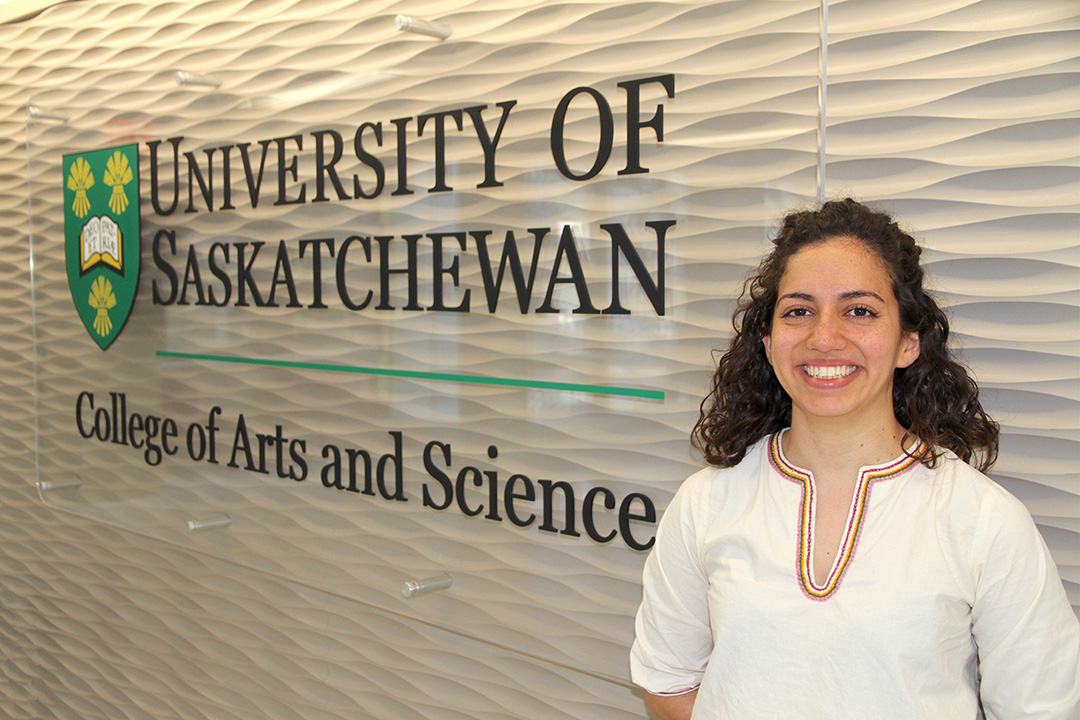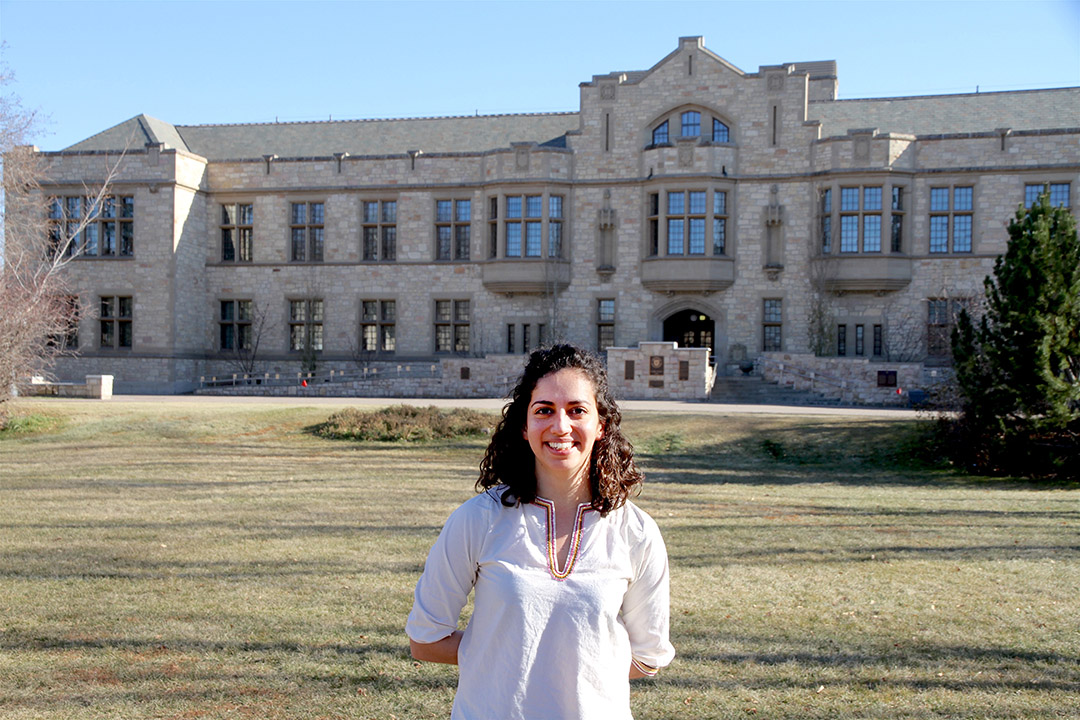
From the U.S. to USask: the road to citizenship
For Rosario Barba, being welcomed to Canada in 2016 was truly a life-changing experience for the University of Saskatchewan (USask) student.
By James ShewagaBorn in Mexico and raised in the United States as an undocumented immigrant, Barba and her family came to Canada two years ago during the rise of President Donald Trump, after Barba’s family was approved for the Saskatchewan Immigrant Nominee Program to start a new life in Saskatoon.
For someone who had never been able to cross a border before while living in the U.S., at the risk of being deported—as her sister was after returning from Mexico—arriving in Canada was a moment Barba will never forget.
“Borders were such a big part of my childhood and you knew that you couldn’t cross them or you couldn’t go back,” said Barba, now a 22-year-old fourth-year honours student at USask, majoring in biochemistry. “But crossing the Canada-U.S. border, they took our papers and I specifically remember the person saying, ‘Welcome to Canada!’ That may sound like a simple thing, but to us, we have always been afraid of immigration officers, so for someone to say ‘Welcome to Canada’ was just so amazing. We finally felt wanted in a country.”
Now two years later, the family has settled into a new life and new careers in Saskatoon, with Barba flourishing on campus and in the community. There were certainly adjustments at first, with climate, culture and cuisine in particular. But while Saskatoon’s Hispanic community may be small, Barba was pleasantly surprised by the diversity on campus, with students from more than 100 countries studying here.
“Those first few months of moving to a new country can be lonely, but coming to this university was great,” said Barba, whose family has permanent resident status and will be able to apply for full citizenship next year. “It was like, borders don’t matter. It doesn’t matter where you are from. When I came here to start university, the hallways were packed and you saw all these different faces. It was very diverse and that really surprised me. And that’s when I knew I was in the right place.”
From afar, Barba continues to watch what has happened to her former country during the rise of Trump and his controversial anti-immigrant, anti-refugee policies.
“I actually got out of the country before he got elected but I remember the night he got elected so many friends called to ask, ‘How do we move to Canada?’” she said. “I talk to friends who are very anxious on a day-to-day basis and they just live under that cloud every day.”
Two years ago, Barba was also living with those same fears while studying at a university near Chicago through the DACA (Deferred Action for Childhood Arrivals) program, but knew her chances of being accepted to pursue her passion for medical research were extremely limited south of the border. She started searching online for new opportunities in Canada, with the university and the province offering the right combination of education and immigration options for her and her family.
“To do high-level biosafety lab research in the States, you have to be government-cleared, but I couldn’t get government clearance as an undocumented person. And at that time, there was only one medical school in the entire United States that was known to me to openly accept undocumented people, so the chances were so limited,” she said. “So that’s why I came here with my family. Here the doors are open for us. Here you are supported and set up to succeed.”
Barba is also giving back to the community that supports her, helping out with the SCI-FI Science Camps and Girls Friday Night Robotics Club offered through the College of Engineering, serving as a mentor for girls considering studying STEM (Science, Technology, Engineering and Math) programs.
“She is an incredible role model for not just our girls who come through our camps and clubs, but for everyone she comes in contact with,” said Maureen Bourke, director of the SCI-FI Science Camps. “Her warmth and enthusiasm are infectious. We are so lucky to have her on staff.”
For her part, Barba is just happy to help.
“Working with young students, you realize the importance of planting an impression on them of how beautiful the world is with all that there is to discover and how we all play a role,” she said. “I want to reach out to young women and make it known to them that science is not intimidating, but rather grows and benefits from the creative minds of diverse women.”
In her own studies, Barba has also excelled in her honours program, under the supervision of Dr. Oleg Dmitriev (PhD) of the College of Medicine.

“She got the second highest mark in her (400-level biochemistry) class and I was very pleased when she expressed her interest in doing an honours research project in my lab,” Dmitriev said. “It is quite a demanding project, combining various biochemical and biophysical techniques, and Rosie has already made very good progress. I am quite excited about the prospects of her research.”
After completing her undergraduate degree, Barba wants to move on to medical school and hopes to eventually return to Mexico to make a difference with her research.
“Long-term, my goal is to go back to Mexico to help improve the health of the people,” she said. “I would like to do more in-depth research into what is happening that affects the health of individuals, especially in low-income and highly polluted areas that nobody looks into, like along the U.S.-Mexico border where they brought in all the industries. There is not enough research being done in those areas, so I want to go back and work with the people of Mexico.”

